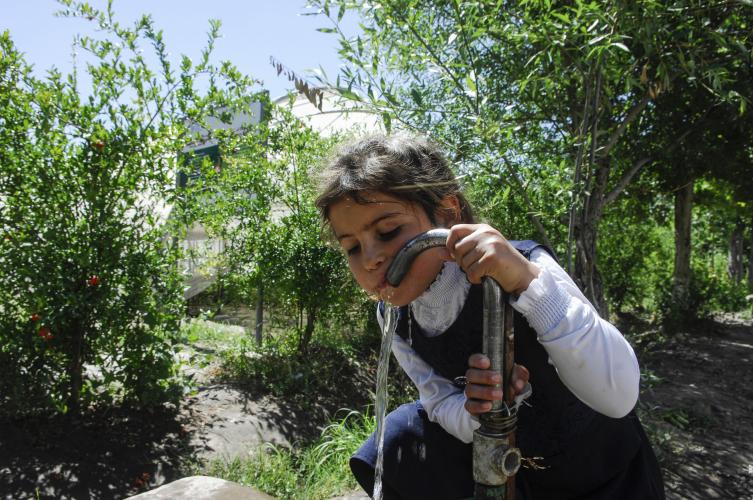Background:
Climate change significantly threatens agriculture through altered rainfall patterns, droughts, floods, and pest and disease redistribution. Additionally, greenhouse gas emissions from agriculture, livestock, and the food system contribute to climate change. However, sustainable agrifood practices can help countries adapt, build resilience, and reduce emissions, ensuring food security.
FAO collaborates with governments and communities to tackle food security, climate change, and biodiversity loss simultaneously. FAO provides technical expertise, mobilizes support, and establishes partnerships to transform agrifood systems, increasing productivity and reducing emissions. To enhance climate resilience, FAO focuses on climate change planning, implementation, monitoring, and reporting, offering policy support, tools, and technical guidance. FAO supports the development and implementation of Nationally Determined Contributions (NDCs) and National Adaptation Plans (NAPs), emphasizing finance and engagement with global climate funds like the Global Environment Facility (GEF) and the Green Climate Fund (GCF). FAO also helps countries enhance transparency and reporting through initiatives such as the Capacity-building Initiative for Transparency (CBIT) and the Enhanced Transparency Framework (ETF).
The 2023 United Nations Climate Change Conference (COP28) made significant progress, particularly with the COP28 UAE Declaration on sustainable agriculture and climate action, marked by a decision on the first global stocktake. COP29 in Baku, Azerbaijan, will build on this momentum, focusing on regional priorities like water, land, and soil, and defining a new collective goal for climate finance.
Objective:
The workshop aims to underscore the critical role of agrifood systems in addressing climate change and implementing climate actions. It will focus on building capacity to integrate food systems and agriculture into international climate negotiations and national strategies through presentations of tools, information, and guidance. By covering these topics, the workshop seeks to foster meaningful discussions, knowledge exchange, and capacity building, contributing to effective COP29 preparation and enhancing climate action in the agricultural sector.
The workshop will be organized into three main sections:
I. Negotiations: With a focus on negotiations items relevant to agriculture and food systems, this segment will highlight the Sharm el-Sheikh joint work on implementation of climate action on agriculture and food security and provide an in-depth analysis of key agenda items for COP29, including the enhanced transparency framework, climate finance, the Framework for Global Goal on Adaptation, the Mitigation Work Programme, and Article 6 of the Paris Agreement. Guidance on COP preparation and participation, including engagement with UNFCCC, will also be provided.
II. UNFCCC COP Presidency Initiatives: The segment will cover COP Presidency initiatives from COP27 to COP29, introducing the Food and Agriculture for Sustainable Transformation (FAST) Initiative and Partnership, which aims to enhance climate finance contributions to transform agriculture and food systems by 2030. Key topics covered will also include climate finance for agricultural transformation, with briefings on opportunities from the GCF, GEF, and other sources. Additionally, the COP29 Presidency initiative, “Harmoniya 4 Climate Resilience: Empowering Farmers, Villages, and Rural Communities,” along with other initiatives will be presented.
III. Call to Action – NDC 3.0: With all countries required to submit NDCs 3.0 in 2025, this segment will cover the integration of agricultural sectors and food systems in NDCs, utilizing tools and targeted support including an overview of Policy Analysis of Nationally Determined Contributions in the Europe and Central Asia Region – 2024 Report.
Additional focus will be placed one the following:
- Loss and Damage: This segment will highlight FAO's expertise and tools to help countries assess and address loss and damage in agrifood systems, ensuring protection for vulnerable communities and food security.
- Gender: Recognizing the significant roles women play in agrifood systems and their disproportionate impact from climate change, this segment will focus on integrating gender perspectives into climate change and agricultural initiatives.
- Enhanced Transparency Framework (ETF) and Biennial Transparency Report (BTR): With the first BTRs due by the end of 2024, this segment will support understanding of ETF requirements, the BTR preparation process, and share experiences in enhancing transparency and reporting on climate actions.
Language and format:
The workshop will be held in Russian and English with simultaneous translation provided. The format of the event is hybrid (in-person and online participation).
